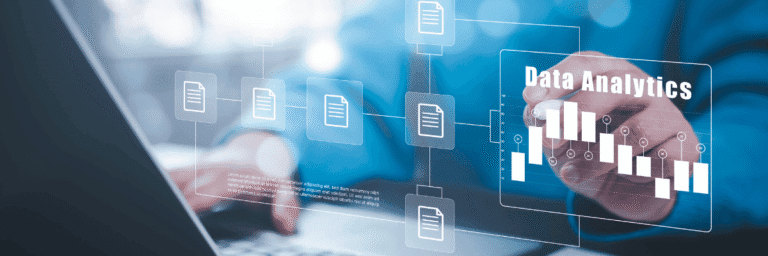In 2025, data reliability will be a major concern for businesses worldwide. Gartner’s latest Data Quality Benchmark Report estimates that poor data reliability could cost businesses over $15 million annually due to inefficiencies, compliance risks, and flawed analytics. As AI, cloud computing, and automation continue to evolve, maintaining data accuracy is more critical than ever.
To tackle this issue, major tech firms like OpenAI and Google have launched AI-driven data validation tools to mitigate inconsistencies. A December 2024 McKinsey survey found that 68% of business leaders believe their data pipelines need urgent upgrades. With unreliable data leading to flawed forecasting, inaccurate AI models, and security vulnerabilities, organizations must prioritize data reliability to remain competitive.
What is Data Reliability?
Data reliability refers to data’s accuracy, consistency, and completeness over time. It ensures that organizations can trust their data for decision-making, analytics, and operational efficiency. Unlike data quality, which focuses on correctness and integrity at a single point in time, data reliability is about sustaining accuracy across multiple use cases and over extended periods.
- Accurate: Free from errors and inconsistencies. Minor mistakes can cause significant setbacks in reporting and forecasting. Regular validation and cleansing processes help mitigate risks.
- Consistent: Maintains uniformity across different sources and reports. Conflicting data leads to confusion and inefficiencies. Standardized data integration ensures coherence.
- Timely: Updated regularly to reflect the most recent information. Outdated data can mislead decision-makers. Automated data pipelines keep information current.
- Complete: It contains all necessary details without missing values. Missing data can result in skewed insights and poor analysis. Data governance frameworks ensure completeness.
- Accessible: Readily available to authorized users without delays. Restricted access can slow down crucial decision-making. Cloud-based storage solutions enhance availability.
How to Enhance Your Data Governance & Compliance with Microsoft Purview
Explore how Microsoft Purview simplifies data governance and compliance with powerful tools for managing, protecting, and securing your data effectively.
Data Reliability vs. Data Quality
Data reliability and data quality are closely related but have distinct differences. Let’s see the key differences between the two:
| Feature | Data Reliability | Data Quality |
| Definition | Ensures data is consistent, accurate, and available over time. | Ensures data is complete, accurate, consistent, and useful for its intended purpose. |
| Focus | Long-term trustworthiness and stability of data. | Immediate correctness and usability of data. |
| Key Metrics | Consistency, accuracy, availability, and completeness. | Accuracy, completeness, uniqueness, timeliness, and relevance. |
| Impact on Business | Reliable data ensures long-term operational stability and trust in analytics. | High-quality data enables accurate reporting, AI predictions, and compliance adherence. |
| Common Issues | Data inconsistencies, integration failures, and data loss over time. | Missing values, duplicate records, incorrect or outdated information. |
| Example | A database that consistently provides the same accurate sales numbers over time. | A customer record that contains the correct name, email, and phone number. |
Data Reliability vs. Data Validity
Although data reliability and data validity are often used interchangeably, they refer to different aspects of data accuracy. Here’s a deeper look at their differences:
| Feature | Data Reliability | Data Validity |
| Definition | Ensures data remains consistent, accurate, and accessible over time. | Ensures that data accurately represents the intended real-world entity or measurement. |
| Focus | Stability and dependability of data across different use cases. | Whether the data measures what it is supposed to measure. |
| Key Metrics | Accuracy, consistency, completeness, and accessibility. | Correctness of data in representing facts or business logic. |
| Impact on Business | Reliable data helps businesses make consistent and trustworthy decisions. | Valid data ensures that business reports and insights are factually accurate and meaningful. |
| Common Issues | Inconsistent records, missing data, and synchronization problems. | Misleading statistics, misinterpreted survey results, or incorrect data classification. |
| Example | Financial transaction records that are consistent across multiple reports and systems. | A survey where responses accurately measure customer satisfaction rather than another factor. |
Why Does Data Reliability Matter?
1. Business Decision-Making
Data-driven decisions are only meaningful when the data is reliable. Poor strategic decisions based on incorrect data could impact the organization’s revenue, customer satisfaction, and even compliance. The right data enables an organization to optimize business processes while minimizing risks.
2. AI and Machine Learning Applications
Artificial intelligence and Machine learning require accurate, consistent, and reliable data to function properly. Training AI on unreliable information sets will distort the data, making the outcome biased, incorrect, or misleading. With dependable data, a model’s performance improves, and errors associated with predictive analytics are lessened.
3. Regulatory Compliance
Regulatory bodies impose strict data accuracy and security guidelines, especially in finance, healthcare, and cybersecurity sectors. Non-compliance with data governance regulations can lead to heavy fines and reputational damage. Implementing data reliability measures ensures adherence to legal and ethical standards.
4. Customer Trust and Experience
Customers expect businesses to handle their data responsibly. Incorrect billing, misplaced transactions, or errors in customer databases can lead to dissatisfaction and churn. Trustworthy data fosters stronger customer relationships and improves brand reputation.
Common Data Reliability Issues and Challenges
1. Data Silos and Fragmentation
Many organizations store data in isolated systems, making maintaining consistency across different departments and tools difficult. Teams may rely on outdated or conflicting information without integrated databases, leading to inefficiencies in workflows and decision-making.
2. Human Errors
Mistakes in manual data entry, mislabeling, and incomplete records can lead to serious reliability issues. Even minor errors can cascade into larger issues, causing financial miscalculations, compliance breaches, and incorrect insights.
3. Outdated Data
Reports are rendered useless when a business does not update its data in real time, resulting in poor decision-making. Businesses that depend on historical data or delayed data often lose out to their competitors, who are able to adapt to new market conditions quickly.
4. Lack of Standardization
In the absence of effective data governance policies, different teams execute processes using their unique data formats, resulting in misalignment and redundancy. This makes intricate business processes less efficient and increases the amount of time needed to process information. As a result, integrating different data sets becomes a more complicated task.
5. Cybersecurity Threats
Tampering and data breaches threaten the integrity of information, making it unreliable and prone to manipulation. The sensitive information on data servers, exposed due to poor internal security, can lead to dire reputational and financial consequences for the organization.
The Role of AI and Automation in Maintaining Data Reliability
1. AI-Powered Data Validation
AI-driven tools can automatically validate data quality by detecting anomalies, missing values, and inconsistencies in real time. Machine learning models can learn patterns and flag unusual data points, reducing human intervention and errors. Tools like Monte Carlo and Great Expectations use AI to continuously improve data validation.
2. Automated Data Cleaning and Standardization
AI-powered automation can remove duplicate entries, correct inconsistencies, and format data according to pre-set rules. This ensures that datasets remain structured and reliable over time. Platforms like Talend and Informatica Data Quality automate these processes, preventing outdated or incorrect data from impacting business insights.
3. Intelligent Data Lineage and Tracking
AI can map out the entire journey of data within an organization, making it easier to trace back errors and identify the source of inconsistencies. IBM InfoSphere and Collibra offer AI-enhanced data lineage tracking that improves transparency and trust in data.
4. Real-Time Monitoring and Predictive Analytics
AI-powered monitoring tools provide real-time dashboards that track data reliability metrics. These systems can predict potential data failures before they occur, allowing businesses to take preventive action. Acceldata and Atlan leverage AI-driven insights to keep data pipelines running smoothly.
Microsoft Purview Information Protection: What You Need to Know
Discover how Microsoft Purview Information Protection helps safeguard sensitive data with advanced labeling, encryption, and compliance tools.
![]() Learn More
Learn More
Importance of Data Reliability Across Industries
1. Financial Services Industry
Banks and financial institutions rely on accurate data for risk assessment, fraud detection, and regulatory reporting. JPMorgan Chase, for example, has invested heavily in AI-driven data validation tools to enhance data accuracy and compliance and reduce financial risks.
2. Healthcare Sector
Hospitals and pharmaceutical companies depend on reliable data for patient records, clinical trials, and medical research. The Mayo Clinic utilizes real-time data monitoring to maintain patient safety and regulatory adherence, ensuring high-quality healthcare outcomes.
3. E-Commerce and Retail
Online retailers such as Amazon and Walmart use robust data management systems to track inventory, personalize recommendations, and optimize supply chain operations based on real-time analytics. Accurate data enables improved customer experiences and streamlined logistics.
4. Manufacturing and Supply Chain
Manufacturers depend on reliable data for production planning, quality control, and logistics optimization. Companies like Tesla and Siemens leverage data-driven insights to minimize supply chain disruptions, enhance operational efficiency, and ensure high-quality production output.
Best Practices for Data Reliability
1. Adopt a Data Governance Framework
A strong data governance strategy ensures data collection, storage, and usage consistency. This includes setting clear policies, defining roles, ensuring adherence to regulatory compliance, and fostering accountability among employees.
2. Utilize Data Observability Tools
Modern tools like Monte Carlo and Acceldata help organizations proactively monitor data quality and reliability, detecting anomalies before they impact business decisions. Implementing these tools can automate issue detection and minimize downtime caused by poor data quality.
3. Implement Data Lineage Tracking
Tracking the movement and transformation of data across systems helps in understanding its origin, ensuring transparency and trust in data-driven insights. Establishing clear data lineage helps organizations trace data issues back to their source, facilitating faster resolution.
4. Perform Routine Data Cleansing
Automated tools are capable of validating and cleaning useful data, making it much simpler to improve business operations and save time. Failing to regularly remove outdated or old data can result in wrong decisions which can severely impact a business. Preceding proper data cleansing routines ensures only relevant information is accessible.
Maximize Your Data’s Potential With Expert Data Profiling Services
Partner with Kanerika Today!
8 Best Tools to Achieve Data Reliability
1. Monte Carlo
Monte Carlo is a data observability platform that helps organizations detect and prevent data anomalies in real-time. Continuously monitoring data pipelines identifies inconsistencies, missing data, and quality issues before they impact decision-making. Companies like JetBlue and PepsiCo use Monte Carlo to improve data trust and reliability.
2. Acceldata
Acceldata provides data pipeline monitoring and optimization for enterprises handling large-scale data operations. It offers real-time alerts, anomaly detection, and performance tuning to ensure smooth data workflows. Businesses like Oracle and DBS Bank rely on Acceldata to enhance operational efficiency and prevent costly data failures.
3. Talend
Talend is a data integration and quality management tool that enables organizations to automate data validation, cleaning, and governance. With features like data profiling, deduplication, and error detection, it helps businesses maintain high data quality. Companies such as Siemens and AstraZeneca use Talend to streamline their data processes.
4. Apache Airflow
Apache Airflow is an open-source workflow automation tool that allows businesses to schedule, monitor, and manage data pipelines efficiently. It ensures that data flows between systems remain consistent and reliable, preventing pipeline failures. Organizations like Airbnb and PayPal leverage Airflow to maintain robust data orchestration.
5. Informatica Data Quality
Informatica Data Quality provides comprehensive data profiling, cleansing, and validation to enhance reliability. It helps businesses define data quality rules, detect inconsistencies, and enforce compliance across systems. Large corporations such as GE and HSBC utilize Informatica for regulatory reporting and risk management.
6. IBM InfoSphere
IBM InfoSphere is a data governance and lineage tracking platform that helps enterprises maintain data trust. It enables data cataloging, compliance checks, and risk assessments, ensuring transparency across all data assets. Organizations like American Express and The Weather Company use InfoSphere for advanced data governance.
7. Great Expectations
Great Expectations is an open-source data validation tool that helps companies define and enforce data quality expectations. It automates data testing, generates reports, and flags issues before they affect analytics. Businesses like Capital One leverage Great Expectations to monitor financial data accuracy.
8. Atlan
Atlan is a metadata management and collaboration tool designed to improve data discovery and reliability. It centralizes data assets, enhances team collaboration, and ensures that data workflows are structured and auditable. Organizations such as Postman and Unilever use Atlan to enhance data team productivity.
Data Profiling: A Comprehensive Guide to Enhancing Data Quality
Improve accuracy, detect inconsistencies, and enhance data quality with our advanced data profiling solutions.
Measuring Data Reliability: Key Metrics & KPIs
1. Data Accuracy Rate
Data accuracy measures the percentage of records that are free from errors, inconsistencies, or incorrect values. A high accuracy rate is critical for ensuring that analytics, AI models, and decision-making processes are based on factual and reliable information. For example, a financial institution monitors the accuracy of transaction records to prevent fraudulent activities and ensure compliance with regulations.
2. Data Completeness Score
Completeness assesses whether datasets contain all required values for analysis and decision-making. Missing data can lead to flawed reports, inaccurate predictions, and business inefficiencies. For example, a healthcare provider ensures that patient records have all necessary details such as medical history, prescriptions, and test results—to avoid treatment errors.
3. Data Consistency Index
The Data Consistency Index checks whether data is the same across various systems, reports, or databases. Not having consistent data can lead to various insights that make no sense and result in operational inefficiency. For example, an e-commerce company makes sure that customers’ orders on the CRM system are the same in the inventory system and the delivery tracking system.
4. Error Resolution Time
This metric tracks the average time taken to identify, report, and resolve data issues. A shorter resolution time reduces business disruptions and improves operational efficiency. For example, a logistics company monitors how quickly it can correct shipment data errors to avoid delivery delays and customer complaints.
5. Data Integrity Score
Data integrity assesses whether data has been compromised, altered, or tampered with throughout its lifecycle. Strong encryption and access controls can improve this metric. For example, a cybersecurity firm ensures that sensitive customer data remains unchanged by unauthorized users.
6. Duplicate Data Percentage
Duplicate data can skew analytics and create inefficiencies in business processes. This metric tracks how many duplicate records exist within a dataset and how frequently they occur. For example, A customer service department monitors duplicate customer profiles to reduce redundant communication and improve response efficiency.
Partner with Kanerika for Robust Data Governance Solutions
As a leading data and AI solutions provider, Kanerika understands the critical role of strong data governance for businesses, especially those managing large data volumes and leveraging AI technologies. Our expertise lies in analyzing your company’s data infrastructure to design tailored governance solutions that meet your unique needs.
We utilize cutting-edge tools like Microsoft Purview to develop robust frameworks that protect both your company’s and your customers’ data. Our solutions not only ensure compliance with global standards but also empower your business to make data-driven decisions with confidence.
With Kanerika, you gain a partner dedicated to securing your data and enabling efficient operations, allowing you to focus on innovation and growth. Choose us to elevate your data governance strategy and drive sustainable success.
Empower Your Decision-Making with Better Data Management
Partner with Kanerika for Expert Data Management Services
FAQs
Why is data reliability important for organizations?
Reliable data is crucial for organizations because it underpins informed decision-making, ensures accurate reporting, and maintains trust among stakeholders. Unreliable data can lead to incorrect conclusions, flawed strategies, and potential financial losses.
What factors can affect data reliability?
Several factors can impact data reliability, including data entry errors, inconsistent data formats, lack of standardized processes, system integration issues, and inadequate data governance practices.
How can organizations improve data reliability?
Organizations can enhance data reliability by implementing robust data governance frameworks, utilizing data validation tools, conducting regular data audits, and fostering a culture that prioritizes data accuracy and consistency.
What role does technology play in ensuring data reliability?
Advanced technologies, such as AI-driven data validation tools and real-time monitoring systems, play a significant role in maintaining data reliability. These tools can automatically detect anomalies, enforce data standards, and provide alerts for potential issues, thereby ensuring data remains dependable.
Can data be reliable but not valid?
Yes, data can be reliable (consistent over time) but not valid (accurately representing the intended measure). For instance, a sensor might consistently provide readings (reliable) that are systematically off due to calibration errors, leading to invalid data.
How is data reliability measured?
Data reliability can be assessed using metrics such as data consistency rates, error rates, data completeness percentages, and the frequency of data discrepancies identified during audits.
How does data reliability impact AI and machine learning models?
Data reliability is critical for AI and machine learning models, as these models rely on high-quality, consistent data for training and predictions. Unreliable data can lead to inaccurate models, poor predictions, and ultimately, misguided business decisions
What is data quality and reliability?
Good-quality data builds trust, and reliability will help ensure you can trust your data and build confidence across your organization. For data quality, reliability means that a piece of information doesn’t contradict the same or another piece of information existing in a different source or system.
What is the principle of data reliability?
Data reliability seeks to ensure the dependable delivery of quality data, on-time processing, and end-to-end pipelines at scale. It’s important to differentiate data reliability from data quality. Classic data quality is a measurement of how fit a particular data set is at meeting the needs of its users.









